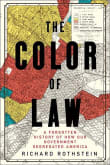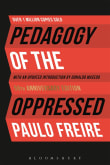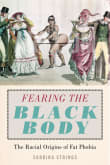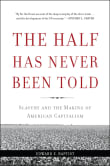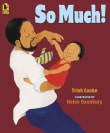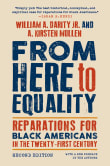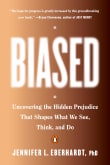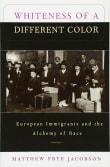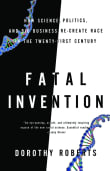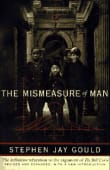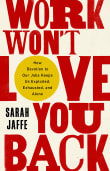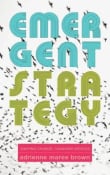The Sum of Us
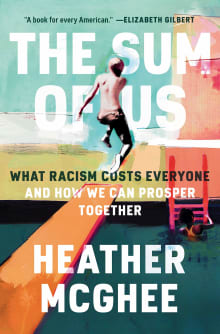
Book description
NEW YORK TIMES BESTSELLER • LONGLISTED FOR THE NATIONAL BOOK AWARD • One of today’s most insightful and influential thinkers offers a powerful exploration of inequality and the lesson that generations of Americans have failed to learn: Racism has a cost for everyone—not just for people of color.
WINNER OF…
Why read it?
9 authors picked The Sum of Us as one of their favorite books. Why do they recommend it?

What are the true costs of racism and the benefits of breaking out of its cage? I deeply admire the way Heather McGhee mines evidence and shows how the construction of race has worked against the interests of everyone, regardless of race. Then, she flips the script and shows compelling evidence for all the ways that we as a people benefit by working together. She calls it the ‘Solidarity Dividend,’ and I love this term she has coined.
She gives living examples of how everyone benefits when we work together to move beyond the zero-sum game, whether in the fields…
From Julie's list on building compassion around issues of race.

This is an amazing book that explores the economic struggles of Americans from Maine to California. McGhee engages with people of all races to deliver an analysis of The American Dream steeped in race and opportunity hoarding, including how racism hurts white people and undermines our collective advancement.
It is a great starting point to understand how widespread, insidious, and entrenched racism is in our daily lives.
From Fatimah's list on that helped me on my social justice journey.

I highly recommend this powerful book, which demonstrates how longstanding political divides have thwarted policies not only benefiting communities of color but also marginalized white communities. McGhee reveals a tragic racial history harming the sum of us.
Critical Race Theory has emerged as a lightning rod, or Rorschach test, pitting progressives and liberals against conservatives and libertarians. But facing down the threats to our democracy demands recognizing the integral role race has played throughout our history and in our politics and culture.
This amply researched book provides an essential account that should resonate on all sides. McGhee carefully and thoroughly…
From Maxwell's list on books for everyone concerned about the state of U.S. democracy.

I loved The Sum of Us because it tells the political and economic history of race relations and investment in public infrastructure, benefits, and services in a readable and accessible manner.
McGhee recounts shocking stories of the ways that, in the midst of the Civil Rights Movement, hundreds of communities across the United States—governed by White people—chose to close or bulldoze public amenities like pools, parks, and campgrounds rather than desegregate them.
This is a sad story of the way that a generation of White Americans cut off their own nose to spite their face. In the decades since, more…
From Kevin's list on racism and the politics of public investment.

When swimming pools were desegregated, White people walked away from them.
When college became accessible to Black people, White people voted to slash public funding. When the party of Kennedy and Johnson were believed to be upending traditional racial hierarchies rather than upholding them, White Southerners abandoned it.
Race plays a critical role in our economic history, and still does today.
This book is both data and storytelling. Required reading.
From David's list on advocates of economic justice.

I grew up believing that philanthropy was a positive thing that helped disenfranchised people, and that my role as a ‘good person’ was to engage in this work. As I evolved my philanthropic understanding, I began to see how the overlapping systems of economics and charity reinforced a status quo that I didn’t want to support. Heather McGhee’s book clearly lays out how the racist policies and practices in all of our systems (from education and housing to environmental practices and health care) are the roots of inequity that make philanthropy necessary. Reading her book will shift your approach from…
From Kristen's list on changing the way you change the world.

The Sum of Us lays out clearly why antiracism is helpful to everyone. We are all victims in a web of racism that divides us and makes for a weaker social fabric. McGee uses both data and stories to explain why racism hurts everyone. She tells stories with data and personal experiences. One story centers on repeated draining of municipal pools in the 1960s because whites did not want to share pools with African Americans. The result, of course, is that nobody now gets to go for a swim on a hot day. Instead of seeing life as a “zero…
From Alan's list on what race is (and is not).

The Sum of Us accomplishes two important things: it illustrates the power of public policy to perpetuate racism and racial inequality and demonstrates the negative impact of such policies on white people as well as Black and other people of color. Racism hurts all of us in tangible and measurable ways. The Sum of Us makes those costs abundantly clear, but also offers much-needed hope and action steps for healing our collective wounds. I love Heather McGhee’s concept of the “solidarity dividend”. It reminds me that change is possible!
From Beverly's list on why racism persists.

While this isn’t a light read, this is an excellent book for those who want to be better informed in order to have conversations with people who don’t quite get why racism is so bad for us as a country - including how it is bad for White people. The economist author opens with a really tangible example of community pools, which in some cities - in the face of integration to allow Black and White neighbors to swim together - were closed down and paved over so that no one could swim. This act of racism left entire communities…
From Sara's list on for kids (and parents) on anti-racism.
Want books like The Sum of Us?
Our community of 12,000+ authors has personally recommended 100 books like The Sum of Us.

